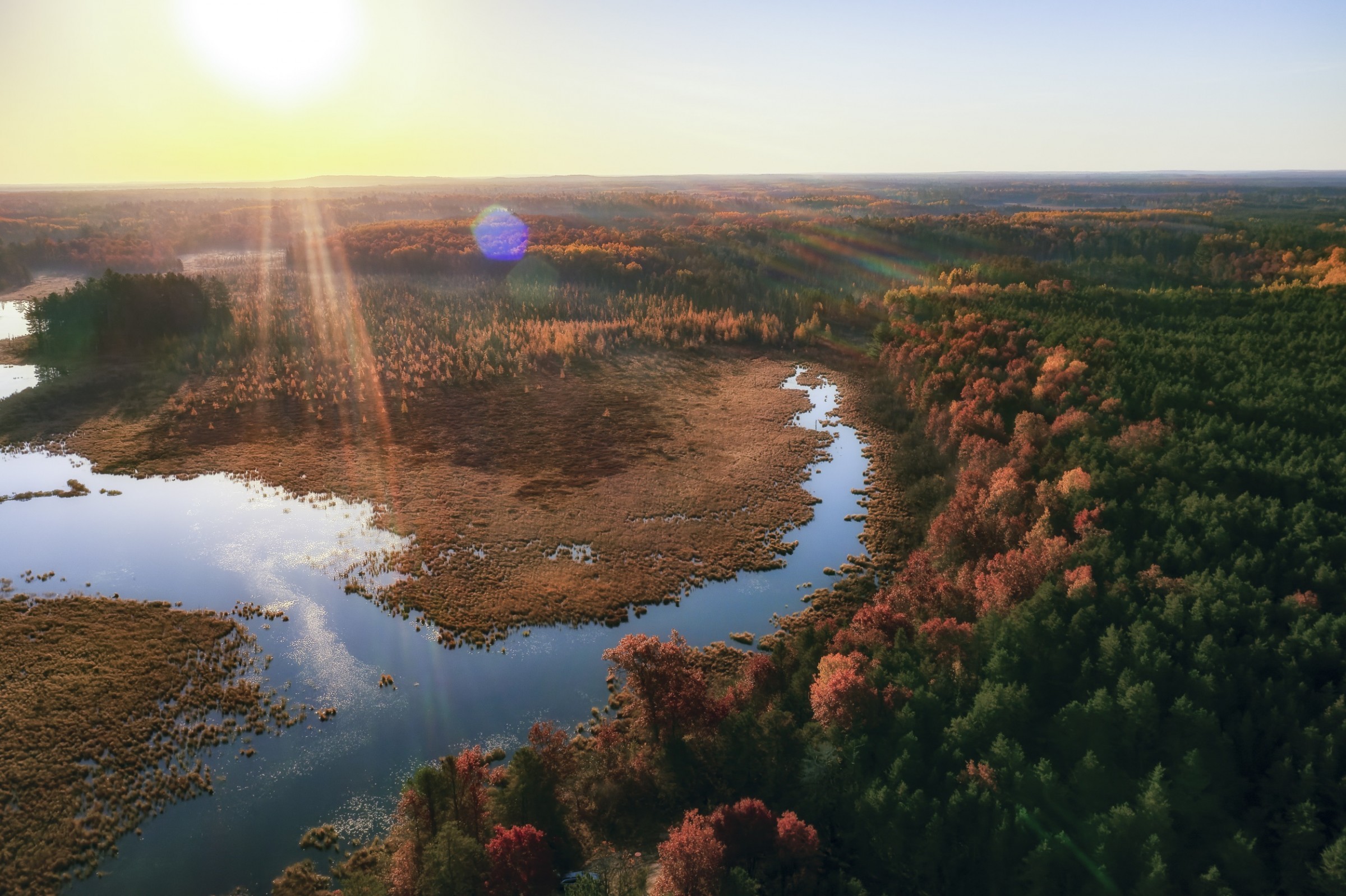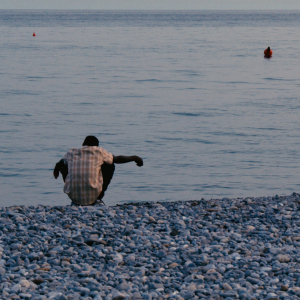The Stream, May 31, 2023: Iran and Taliban Exchange Gunfire, Heightening Water Tension

Wetlands near Lovells, Michigan. Photo © J. Carl Ganter/Circle of Blue
YOUR GLOBAL RUNDOWN
- At least two people were reportedly killed amidst heavy gunfire along the Iran-Afghanistan border, escalating a water rights dispute between the countries.
- A weak, late rainy season has cut this year’s farming output in Gaza, Palestine, to just one quarter of its usual yields.
- Typhoon Mawar, the largest storm to hit Guam since 2002, has left many residents without water or electricity.
- In Senegal, water-saving farming methods are producing higher rice yields while improving soil health.
The U.S. Supreme Court narrowed Clean Water Act protections for wetlands that aren’t directly connected to “lakes, oceans, streams, and rivers.”
“The Supreme Court ripped the heart out of the law we depend on to protect American waters and wetlands.” — Manish Bapna, president and CEO of the Natural Resources Defense Council, in a statement.
In a decision last week the Supreme Court ruled against the Environmental Protection Agency in Sackett v. EPA, a case brought by Idaho landowners which became an attempt to limit the Clean Water Act’s purview over wetlands, InsideClimate News reports.
The attempt succeeded. Since enacted in 1972, the Clean Water Act granted the EPA and Army Corps of Engineers the ability to protect “waters of the U.S.” from polluters and development. Lakes, oceans, streams, and rivers — and “adjacent” wetlands — were included in this language.
But last week’s ruling changes “adjacent” to mean “adjoining” — meaning that inland wetlands must now maintain a “continuous surface water connection” to one of these larger features in order to be protected.
Per InsideClimate News, the decision is a win for small landowners, real estate developers, and construction companies who previously required federal permits to build on wetland habitat.
Critics and environmentalists argue that this language is arbitrary in the grand scheme of ecosystem hydrology — all waterways are connected, and the decision will lead to a degradation of the country’s inland wetlands.
Wetlands act as natural water filters and carbon sinks, and provide habitat for countless threatened and endangered species.
— Christian Thorsberg, Interim Stream Editor
Recent WaterNews from Circle of Blue
- In Iowa, a Tale of Politics, Power, and Contaminated Water — Lawmakers silence Chris Jones, a prominent University of Iowa water quality researcher.
- HotSpots H2O: Trouble Areas Emerge as Summer Looms — Access to water – or lack of it – is agitating existing conflicts, imposing economic losses, worsening hunger, and reshaping geopolitical relationships.
The Lead
Iran exchanged “heavy gunfire” with the Taliban over the weekend along the Afghanistan border, an escalation of a water rights dispute, AP reports. Leaders in both countries said that at least two people had died, and more were injured, though reports are inconsistent both on the number of casualties and which side shot first.
Iran is in a dire state of drought, which has persisted in some form for the past 30 years. Today, Iran’s Meteorological Organization claims that 97 percent of the country is in some stage of drought.
The armed conflict follows Iranian President Ebrahim Raisi’s remarks earlier this month in which he warned the Taliban not to interfere with Iran’s use and testing of the Helmand River, which originates in Afghanistan and flows south into Iran. “We will not allow the rights of our people to be violated,” he said.
This Week’s Top Water Stories, Told In Numbers
1,000
Fewer tons of wheat, compared to last year, that Palestine’s annual harvest has yielded, Reuters reports. A lack of consistent rain has affected both the quantity and quality of rain-fed crops in Gaza and along the Strip, according to Palestine’s Agricultural Ministry, which says that climate change remains a concern.
150,000
Number of farmers across West Africa helping to implement a new water-saving, rice-growing program, Mongabay reports. The farming method the program teaches is called the “system of rice intensification,” or SRI. Developed in the 1960s, the SRI method “consists of several core principles: minimize competition between plants, balance the availability of water and oxygen in the soil, and build up soil fertility.”
Rather than the conventional method of scattering rice seeds and later transplanting seedlings into flooded fields, SRI intentionally limits plants’ access to water, forcing them to develop stronger roots and survive in stressful conditions. Research has shown that this method results in less competition, healthier soils, and higher yields. The benefits of SRI have been seen in Senegal, where the majority of residents (70 percent) work in agriculture, yet climate change is expected to reduce rainfall by 20 percent in the near future.
On the Radar
A boil-water advisory is in place for Guam’s residents following the arrival and departure of Typhoon Mawar, the largest storm to hit the U.S. territory since 2002, Al Jazeera reports. More than 50,000 households, businesses, hospitals, and water facilities are without power; emergency crews are working to restore access. Mawar dropped two feet of rain on Guam’s northern and central regions, generating wind speeds of 140 miles per hour and 30-foot waves. Fortunately, no deaths or injuries have been reported.
More Water News
Hot Water: An official in India was suspended from his job after draining 530,000 gallons of water from the Paralkot reservoir in order to retrieve his phone, which he dropped while taking a selfie, CBS News reports.
Sinking City: New research shows that New York City is sinking an average of 1-2 millimeters per year, gradually adding to the risk of rising sea levels — which, around New York City, have climbed 9 inches since 1950, The Guardian reports.
Christian Thorsberg is an environmental writer from Chicago. He is passionate about climate and cultural phenomena that often appear slow or invisible, and he examines these themes in his journalism, poetry, and fiction.






Leave a Reply
Want to join the discussion?Feel free to contribute!